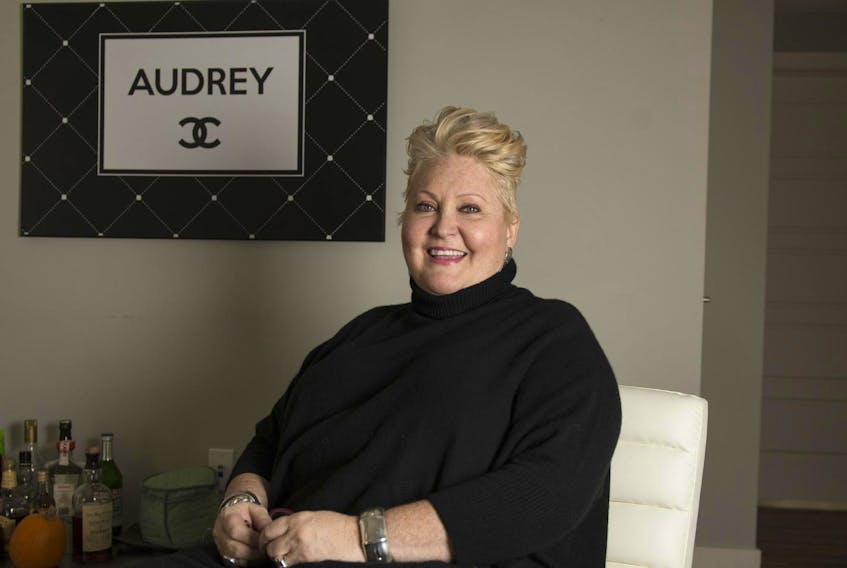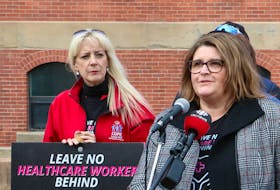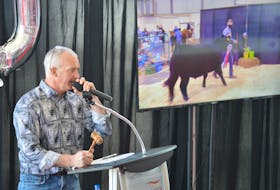Editor's note: A year after Audrey Parker's death, SaltWire senior managing editor Steve Bartlett reflects on an interview he did with the Nova Scotia woman just before she sought medical assistance in dying.
Audrey Parker is days away from a medically-assisted death.
There are many things she could be doing, but she’s set aside time to talk about her decision and advocacy with journalists.
I was fortunate to have 30 or so minutes with her.

Our interview — which took place a year ago Oct. 30 — was part of some research on those who've faced life-and-death decisions, the path they chose, and how things worked out in the end.
The ultimate goal was including Parker’s story in a series of features under the theme "Characters of Strength."
Such an initiative would result in powerful narratives that added perspective to everyday decisions, hopefully inspiring thought and bringing context to the pressures of today’s world — we make decisions all the time, and we agonize over some of them, even though very few are life-and-death choices.
The series is not yet a reality, but, with Nov. 1 marking the first anniversary of Parker’s death, it feels right to revisit the insights I gained from my conversation with her.
Parker is the Halifax woman who was faced with an incredible choice after already choosing, and getting approved for, medical assistance in dying.
Her options: saying goodbye sooner than she wanted in planned peace or hanging on as long as possible at risk of dying a “very cruel, painful death.” (The quoted description is from Parker’s self-penned obituary.)
The choice, unimaginable to most, presented itself after cancer spread to Parker’s brain lining.
If the condition compromised her cognitive ability, Parker could no longer give the consent required for a medically-assisted death — even with a legal directive.
So, she chose to die earlier with medical assistance and on her terms.
We had never met or spoken before the call.
After interviewing thousands of people over the years, I admit having preconceptions — mainly that Parker would be anxious or emotional. Those seemed like obvious assumptions given the impending finality of her choice.
As well, this was my first interview with someone who knew when, where, and how they were going to die.
It’s hard to explain exactly how that felt, but my heart was in my throat while waiting to connect.
All the anxiety and preconceptions quickly disappeared with Audrey’s welcoming voice.
She was calm and confident, poised and positive.
We started talking about her decision and what went into it.
I anticipated a lengthy answer about deliberations and doubts, but instead got something succinct and sure.
To her, a medically-assisted death, where she died on her terms, was the obvious choice.
Once that decision was made, Parker told me, she never looked back.
There was no hesitation or remorse in her voice. No hint of could have, would have, or should have.
Instead, she spoke about planning an incredible good-bye, filling her final days with family, friends and the simple things she loved, like singer Laura Smith’s music and lobster with drawn butter.
Parker also talked about her efforts to change the law that forced her to leave before she wanted. She was lobbying Ottawa to waive the requirement for late-stage consent for those approved to die with medical assistance.
Having to consent twice doesn’t protect patients, she explained, it hurts them.
During the recent federal election campaign, Justin Trudeau said the Liberals would relax assisted-dying legislation if re-elected. It remains to be seen if he can keep that promise in a minority government.
If the decision-makers need insight, they should look to Audrey Parker’s experience and advocacy.
Waiving the law would have given her more time, time she undoubtedly would have made the most of.
She is a true character of strength.
Steve Bartlett is SaltWire Network's senior managing editor. Reach him at [email protected].









